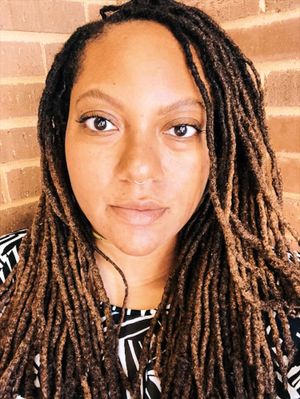Thank you for your interest in my new project, When The Womb Is Tender, a visual documentary of Black and Indigenous women's struggles with uterine fibroids. This isn't just a reproductive issue that greatly impacts these communities, but it is also a personal story as well. I was first diagnosed with uterine fibroids or UF (non-malignant tumors in the uterus) when I was 26 years old. My symptoms involved frequent urination, painful and heavy periods, fatigue, and bloating. Immediately, you're faced with having to make the decision up front and early on about treatment options and whether or not you will be fit enough to have children. My first myomectomy (a surgery to remove the fibroid tumors from the uterus) took place in 2008. More fibroids returned and I had my second myomectomy just 6 months later. I would have a third and final surgery, a hysterectomy in 2019 that was incredibly complicated and it resulted in the removal of my ovaries and appendix. Yes, my appendix. I had scar tissue from my previous surgeries that I was unaware of. It wrapped itself around multiple organs. This explained the pain I was having prior to the surgery in addition to the onset of depression and other mild to moderate symptoms.
There is little offered post a surgery of this nature outside of the directives of ensuring your wound is clean to stave off infection and to manage your pain. No one, not even my provider, mentioned the possibility of body dysmorphia, post-op depression, massages to break up scar tissue, and coping with the reality of never having children of my own.
Imagine my story being just one of tens of thousands of women each year that are impacted by UF. Do you know a woman who has had this experience? Do you fully understand the scope of the long-term effects before and after any treatment? Do you think that we advocate for more research into this common abnormality just as much as we advocate for the advancement of reproductive education? Reproductive justice is in the midst of a battle about abortion rights. It is imperative that we prioritize the intersectionality of this fight - it does not begin and end with the right to a legal abortion. Access to healthcare, reproductive education, and resources, research funding for underrepresented communities of color, all fall under this umbrella.
My hope is to deliver the stories of these women with care and empathy so that we can continue the conversation that will lead to a better understanding of why the reproductive rights of BIPOC women requires special attention.
